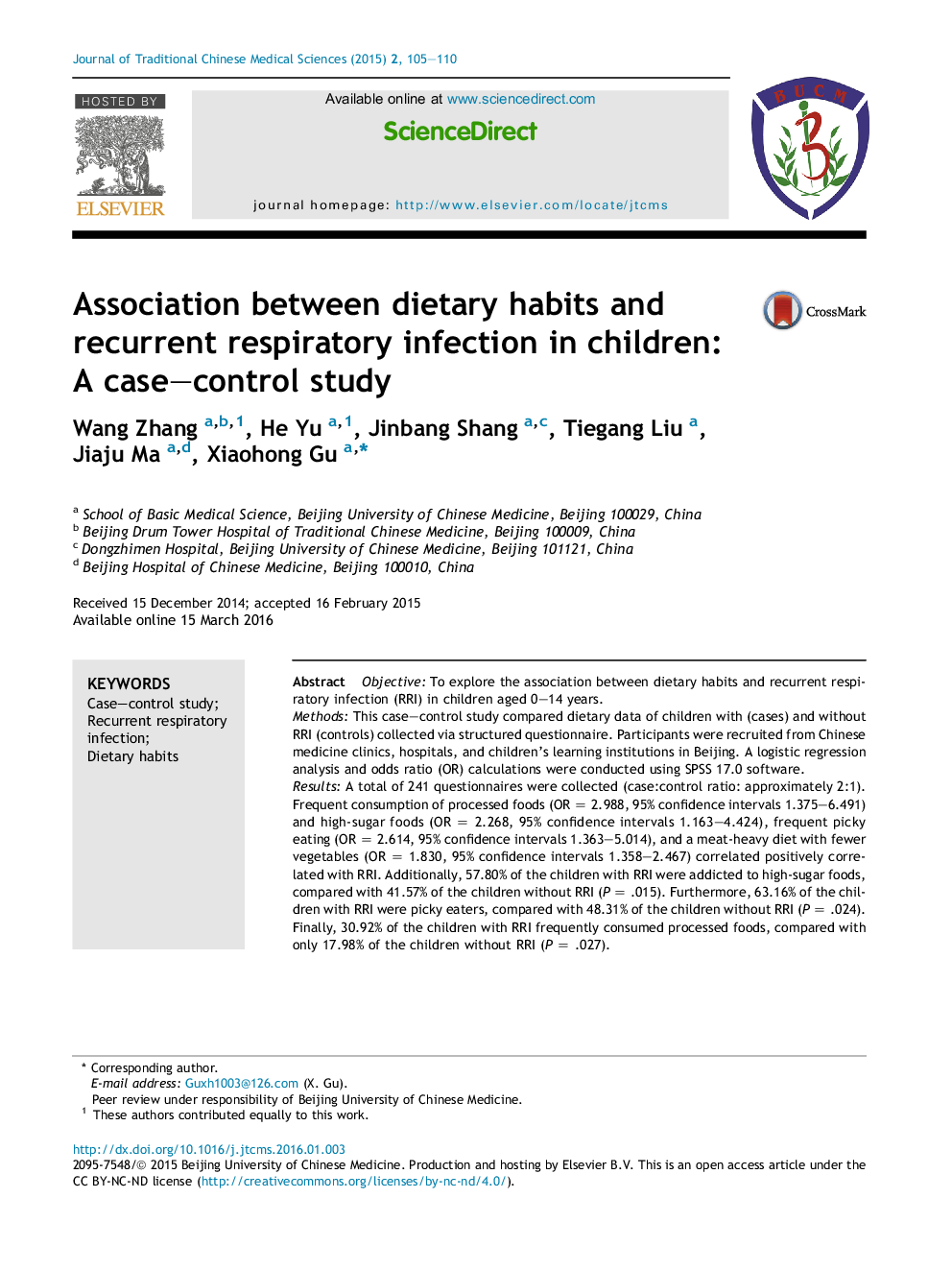| Article ID | Journal | Published Year | Pages | File Type |
|---|---|---|---|---|
| 1993120 | Journal of Traditional Chinese Medical Sciences | 2015 | 6 Pages |
ObjectiveTo explore the association between dietary habits and recurrent respiratory infection (RRI) in children aged 0–14 years.MethodsThis case–control study compared dietary data of children with (cases) and without RRI (controls) collected via structured questionnaire. Participants were recruited from Chinese medicine clinics, hospitals, and children's learning institutions in Beijing. A logistic regression analysis and odds ratio (OR) calculations were conducted using SPSS 17.0 software.ResultsA total of 241 questionnaires were collected (case:control ratio: approximately 2:1). Frequent consumption of processed foods (OR = 2.988, 95% confidence intervals 1.375–6.491) and high-sugar foods (OR = 2.268, 95% confidence intervals 1.163–4.424), frequent picky eating (OR = 2.614, 95% confidence intervals 1.363–5.014), and a meat-heavy diet with fewer vegetables (OR = 1.830, 95% confidence intervals 1.358–2.467) correlated positively correlated with RRI. Additionally, 57.80% of the children with RRI were addicted to high-sugar foods, compared with 41.57% of the children without RRI (P = .015). Furthermore, 63.16% of the children with RRI were picky eaters, compared with 48.31% of the children without RRI (P = .024). Finally, 30.92% of the children with RRI frequently consumed processed foods, compared with only 17.98% of the children without RRI (P = .027).ConclusionAlthough RRI correlates positively with several dietary habits, in the future, prospective cohort studies with larger samples are needed to generalize these findings.
